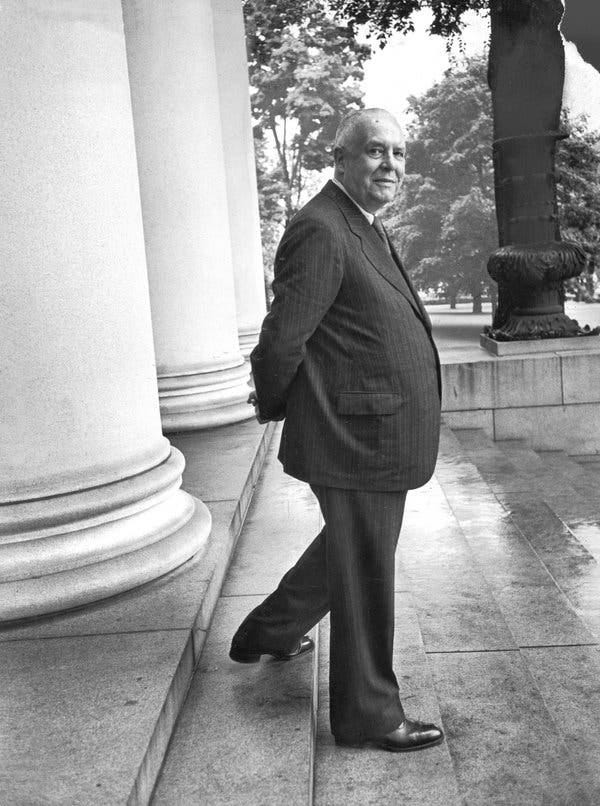Sold Out
The End of Selling Out and the Nothing that Was
Don’t sell out! Poets don’t follow the grosses in Variety. No one is going to option your poem for a movie, and they’d ruin it anyway. You could be James Merrill, who already had money—he was Merrill of Merrill Lynch fame, after all--or Wallace Stevens, who was apparently the worst insurance lawyer in Hartford, but they kept him because he won the Pulitzer and added a splash of glamour to the Hartford Accident and Indemnity Company, and because he rebranded zero, meaning the number, the concept—the nothing that is not there and the nothing that is. The Nothing That Is. That’s not selling out. It’s making something of rock bottom. One must have a mind of winter. Boom.
These are figures from a vanquished world. Integrity should matter. Socrates had it. He could have sold out to Athens, but corrupting the young was his thing, and he called it “philosophy.” Galileo didn’t sell out, and look at where it got him. Jesus of Nazareth, same thing. For them, for many, selling out is a posthumous thing, the Van Gogh effect. His work is now worth over 177 Trillion Dollars, and he didn’t go to the South of France for vacance; he was a sans Franc townie. It is a steep price to pay, this integrity thing. Yet we were taught to admire these people, and it happened that my Generation—X—was the most defiantly anti-success of all. Kurt Cobain’s suicide note said he just couldn’t pretend to be Freddie Mercury. He might have been happier if Nirvana had been as marginally appreciated as The Melvins, though who knows? My entire liberal arts campus went into flannel mourning when Cobain left us. Many people couldn’t believe that something important had happened.
No one is against selling out anymore. Go to the top MFA programs and the novelists are talking about options and streaming and the poets are entering bidding wars for their memoirs. No one romanticizes being unsuccessful anymore. The rent is too damn high. It was a thing for so long, then it stopped. Could someone commemorate it? It seems important. Did humans just stop having shame—not just as a culture, but a subculture—or were we helpless in the face of inevitable advertisements for ourselves?
The answer is: kind of. Track the last 20 years. 2004 was the year The Facebook was launched in the dorm room of an incel named Zuckerberg. It was also the year that an Australian action hero who once said, on recording, "Jews start all wars," self-financed a snuff film about Jesus--that eccentric rabbi who got into all that trouble--in the original Aramaic and it sold tickets and merch, yet did not start a renaissance of Aramaic cinema. Did Jesus sell out? To the 2.4 Billion who call themselves Christians, he didn’t because they bought it, though buying something is what we’re talking about here. The biggest Aramaic movie to date grossed $59.6 Million, 31 percent of all Americans. To them: mashelem. In Aramaic, you heard Jim Caviezel as Jesus say “It is accomplished.” It is. It was. Mel Gibson was no friend of the Jews, and yet Hollywood could not stay mad at him. He got his Golden Globes table back, laughed at Ricky Gervais’s jokes, was eventually cast in Daddy’s Home, 2. But what else was accomplished?
That summer, a handsome and charismatic young State Senator from Illinois named Obama stole the show at Kerry’s DNC, and even though Kerry lost, Obama became the underground guy you wanted to see take it all the way. We usually compromise. The guy we really look up to doesn’t get the nom and we have to take what we can get, but this one time maybe things could be different. Obama was the first successful internet president. He raised so much virtual green, he didn’t need anyone’s lame matching funds. There seemed to be direct delivery happening. We didn't want him to be a community organizer, a law professor, a backbencher in the US Senate. Stepping stones. We wanted him to go all the way. People sent $20 the way they made Amazon purchases. Around 10 years ago, a graduate student, in the middle of occupying a building, described him as a very charming war criminal. In the same conversation, she told me that she put herself to sleep listening to Noam Chomsky describe state violence in dulcet tones.
Have a contrary view, and you can go on a screen and find an entire silo of humans who kind of agree with you. And that digital availability is about 20 years old. The beginning of Social Networks meant the end of obscurity. That is, anyone with a band, a stand up act, a chapbook, a monograph—they come with self-promotion. If you want to communicate with the world, you are somehow selling out, whether your work is avant-garde or your name is Taylor and you think this country act could get, you know, bigger. Remember when Greta Gerwig was in those delightful indie movies? Didn’t you love her in Greenberg and Frances Ha? So indie! So meek? Made for people who appreciate Rohmer. She wouldn’t make a Billion Dollars on a franchise movie about a doll, right?
Do you sell out because you got rich or because you compromised? It’s getting harder to do it without compromise. The road to the Big Five publishers and streaming services keeps narrowing, and if you want in on the big time, either your creative product is a perfect fit, or you keep modifying, and you could do it for the rest of your life. I, a stranger afraid, in a world I never made. A.E. Housman wrote that. He didn’t make this world and neither did I. Look around. I carry a torch for this thing that was, and this thing that could very well come again.
Back in the 90s, Aimee Mann was a cautionary tale for going the artist with integrity route. It was the only route she knew, and we loved her for it and still do. In a way, integrity is her grand theme, on every level. Can you save me? Do you have what it takes? Wise up. You think you have, but you can’t wise up enough. She got fucked over by her first label, Epic, and in an Epic way. She then got signed to a small label, Imago, so small it couldn’t make it. Then David Geffen decided he would be interested in her for a few seconds, bought the first solo album and the next one, called I’m With Stupid. The albums are amazing. They’re Aimee Mann albums, and I could not imagine life without them. But the sales did not reflect the greatness, and there she was, again. On that album was a cautionary song called “You Could Make a Killing.” It was against success, or at least a certain kind of calculated success. It was pro-integrity.
I wish I was both young and stupid
Then I too could have the fun that you did
Till it was time to pony up what you bid
So you can make a killing




